Keynote Presenter: April Allen
Innovation Isn’t Always Something New – It’s Someone New
Child welfare and probation systems have embraced CQI in seeking to address the toughest problems facing the field: What are the best ways to move upstream and focus on prevention? What are effective ways for staff to engage young people and families? What can leaders do to address disproportionate contact and disparate outcomes for marginalized communities?
However, efforts to answer these and other important questions are destined to fail if we focus on what we are doing, at the expense of who we partner with along the way. Dr. Allen will share how engaging lived experts is essential to asking better questions, building trust and generating new approaches to intractable problems. Drawing on her personal experience as a young person in the child welfare system and her professional roles leading CQI efforts for governments and nonprofits, she will share lessons learned and invite us to envision a future where lived experts are centered in measuring the impact of innovations.
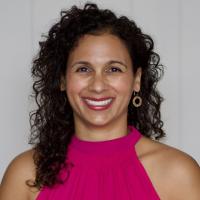
April Allen, Ph.D., M.P.A., is a forward-thinking and forward-looking changemaker with a passion for using data to transform systems that serve children, youth and families. She is the founder and CEO of Spark Learning for Organizations LLC, and has previously held senior roles in research, government and nonprofit settings. A substantial portion of her research agenda has focused on the experiences of young people involved with the child welfare system, informed by her own experiences as a child in care. Allen launched Amplify Action Research in 2020 to build a pipeline of leaders with lived experience in service systems. She holds a Ph.D. in Social Policy from Brandeis University and a master’s degree in Public Administration from Queen’s University.
Keynote Presenter: Naveen Sangwan
Back to Basics: Creating a Culture that Fosters Creativity, Innovation and CQI
"Culture eats strategy for breakfast” – Peter Drucker, Management Consultant.
Organizational culture is the most important determinant in successful execution of any strategy and/or initiative. Research studies have shown that 70% of all new initiatives and transformations fail due to lack of alignment of culture to the vision. Foundational to effective implementation of Continuous Quality Improvement (CQI) is the development of a CQI culture that builds self-efficacy and fosters a sense of personal accountability at every level – from frontline staff to the executive leadership team.
Pivotal to developing a strong CQI culture is aligning the belief system of staff both individually and as a collective with that of the CQI and organization’s vision. Drawing upon her personal experience of transformational change within self, and later leading change at community level and within organizations, Naveen will share the power of beliefs in unleashing our potential and developing a culture that fosters creativity, innovation and continuous quality improvement.
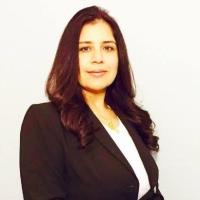
Naveen Sangwan, MBA, M.P.H., PCC, has over a decade of international experience in leading change, leadership development and continuous quality improvement. She is a seasoned coach with experience in coaching executives, managers and staff in implementing transformational change projects. She is a recipient of several professional, leadership and academic awards. She is currently serving as the CQI manager for the Department of Family and Children Services, Santa Clara County and also serves as an instructor for UC Davis Human Services.
Keynote Presenters: Chapin Hall,Yolanda Green-Rogers and Krista Tomas
The Power of CQI in Advancing Race Equity and Achieving System Transformation: An Overview
Human services agencies across the country are engaged in substantial efforts to transform their service delivery systems towards improved outcomes for children and families. Child welfare agencies are exploring ways to leverage the Family First Prevention Services Act toward more comprehensive prevention services, family-based placement arrays, and community collaboration. Juvenile justice agencies are working to reduce trauma, promote rehabilitation, and increase community-based solutions over institutionalization. These efforts are often underscored by a concurrent commitment to advancing racial equity and reducing disparities in child and family experiences and outcomes. Holistically managing this kind of systems change requires a robust CQI infrastructure with clear practices and widespread engagement.
In this session, presenters will speak to the essential role of CQI in achieving meaningful and sustainable system change and increasing equitable outcomes for diverse communities. Guiding principles for promoting equity within foundational CQI activities will also be shared, highlighting specific strategies and action steps CQI leaders and staff can integrate into their work. In a subsequent workshop, participants will have an opportunity to take a deeper dive into the highlighted strategies and action steps and assess where they are in their own CQI journey.
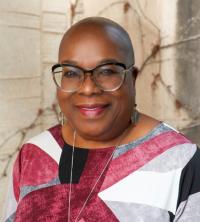
Yolanda Green-Rogers, M.S.W., is a Senior Policy Analyst at Chapin Hall at the University of Chicago. Green-Rogers works with public and private social services agencies across the country on the implementation of CQI practices and protocols. Green-Rogers conducts assessments of CQI processes, makes recommendations to leaders on using the CQI process to achieve priority outcomes and delivers training and coaching to increase staff capacity to implement CQI principles. Green-Rogers has extensive experience participating in Child and Family Services Reviews as a federal consultant / QA specialist and teaches a graduate course on quality improvement in the social services at the University of Chicago’s Crown School of Social Work, Policy and Practice.

Kristin Tomas, Ph.D., is a Senior Policy Fellow at Chapin Hall. Thomas leads blended teams of policy, practice and research experts in efforts to build the capacity of state and local human services systems across the country to execute large-scale transformation initiatives and improve outcomes for children and families facing adversity. Her areas of expertise include federal child welfare policy, programs and monitoring; large-scale child welfare performance improvement at the state and local level; evidence use in decision-making; kinship navigation; and redesigning upstream prevention strategies. Prior to joining Chapin Hall, Thomas served for over a decade in the U.S. Department of Health and Human Services, Administration for Children and Families, Children’s Bureau in both regional and national offices.
Keynote Presenter: Gaelin Elmore
Be the Difference: Saying Yes to Belonging is the Key to Unlocking Potential
Belonging is an innate and fundamental need that is pivotal to how we experience relationships, interact with the world and develop our gifts and talents. Unfortunately, there is a gap in belonging for current and former foster youth. While trauma plays a large role, it isn’t the only factor widening the gap they experience. A hefty amount of responsibility falls on the system itself. As one of the few places where foster youth are supposed to “belong,” the system consistently falls short.
In an effort to help foster youth access to their full potential, system of care professionals must commit to "be the difference" every day. And to do that, we must say yes to belonging. In his talk, Gaelin Elmore will use lived experience, leading research on belonging and CQI principles to help us all commit to be the difference.
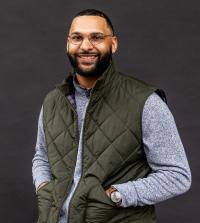
Gaelin Elmore
After a childhood filled with trauma, abuse, neglect and homelessness, Gaelin Elmore believed his issues would be solved if he became successful. From college football to signing an NFL contract, Elmore was driven, even comforted, by this assumption. It wasn't until he achieved what he thought was "success" (making it to the NFL), that he finally realized he had been wrong all along. And so, Elmore retired as a rookie to begin his journey of self-love, self-discovery and belonging. That journey has led Elmore here today, and to stages all across the country, aiming to inspire, encourage and equip others, to erase the belonging gap plaguing youth with adverse childhood experiences.
Keynote Presenter: Khush Cooper
Adaptive Competence in a Human-Centered Context
This presentation will reframe CQI as a matter of achieving “adaptive competence,” something for which all people and organizations strive. CQI is usually framed in the context of “better services in the interest of better outcomes for children and families.” If we are to be “human-centered” in our measurement selection and reporting, while children and families are indeed the ultimate beneficiaries of our service processes, the human services professionals and practitioners who serve them also deserve a central role in designing the data-driven performance management system. More than the standard mantra of benefit to children and families, what motivates human services professionals and practitioners to care about CQI, data-driven decision-making and/or performance management is whether a CQI program enables them to assess what is coming at them and take effective action in the face of concerning trends. This way, they can have an early-warning system to prevent future trouble, they can take pride in their work, and they can sustain their work long-term in an ever-changing world where priorities compete and resources are limited. In the end, CQI uptake in an organization is a function of the degree to which the CQI efforts are seen to provide adaptive competence to staff and practitioners. If CQI programs and associated data tools such as dashboards are not designed with the practitioners needs in mind, they will remain isolated to executive teams and data departments with little buy-in and attention from staff, supervisors and managers – the people whose performance is actually measured by these programs.
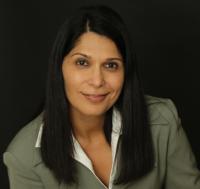
Khush Cooper, Ph.D., M.S.W., is an adjunct professor at the UCLA Luskin School of Public Affairs as well as the CEO of Implematix, specializing in the study and practice of implementation science. In addition to teaching, she serves as a consultant to public and private child welfare organizations in the areas of foster care reform, LGBTQ youth in systems, implementation science and leadership. Cooper has cultivated long-standing relationships with policymakers, leading practitioners, and consumers to shield and guide California’s child welfare organizations through reform initiatives. Her credibility in the child welfare field is further enhanced by her years of direct practice experience in foster care, residential treatment and community adolescent service settings.
Keynote Presenters: Yostfish - D. Andrew Yost, Cristal Ramirez, Heather Cantamessa and S. Fisher Qua
From the Ground, Up: An Opportunity to Shape California’s Child Welfare System
In 2023, California will launch a new initiative to create a number of durable, multi-disciplinary teams that will analyze, reform, critique and direct the state’s child welfare system improvement efforts. And by “system,” we don’t just mean the agency. We mean the courts, parents, foster youth, service providers and a whole host of others who makeup “child welfare.” Central to this vision is the wisdom of those impacted by the system, and those working within it. Their voices and experiences will guide the state’s review and play a formative role in its future. A team of designers and facilitators will help create the space for this initiative and show you how you can contribute to this powerful new approach.

D. Andrew Yost, J.D., Ph.D., helps create spaces where people can thrive. He uses humor, sincerity, design theory and the imagination to bring communities together, and to get things done. He is the co-founder of Yostfish, LLC, a national consulting firm that specializes in solving complex problems. He coaches and facilitates nationally on issues related to complexity science, community building, adult learning theory, and state and tribal child welfare issues. He served as senior counsel at the National Association of Counsel for Children (NACC), where he led the NACC’s national training program and represented children in dependency court. He currently serves as the instructional design and education lead at the Capacity Building Center for Courts, an entity funded by the U.S. Department of Health and Human Services, Children’s Bureau.
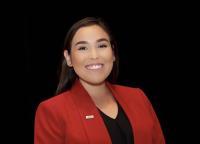
Cristal Ramirez, M.S., is the youth engagement manager at the National Association of Counsel for Children, where she manages the National Advisory Council on Children’s Legal Representation, made up of young professionals with lived experience in the child welfare system. She oversees youth engagement efforts, which include providing technical assistance, training and developing materials. Ramirez has also helped develop a peer advocate program for Wyoming’s Office of the Guardian ad Litem, working closely with youth, GALs, therapists, social workers and resource parents. Additionally, she has a background in mental health, receiving her Master’s in Counseling, with an emphasis in Social Justice Education from San Diego State University.

Heather Cantamessa’s experience in creating allies amongst adversaries started from her personal child welfare system experience and moved into building grassroots collaboration and parent-led programs that have been replicated in dozens of communities across the nation. She is the owner of Re-Unify Family Solutions LLC, where she has had the opportunity to serve families in a multidisciplinary team role, assisted to design a family-centered treatment program, and contributed to build a prototype to assess and improve legal team performance. Cantamessa is a member of local, state, national and global parent advocacy groups.

S. Fisher Qua is based in northern New Mexico. His primary professional areas of focus and involvement have been in education—postsecondary as well as an increasing familiarity in K-12), community health and well-being—and supporting scientific research organizations. Qua is committed to developing participatory approaches to working with complex problems that tap into more of each person’s intelligence, imagination and creativity.
Young Adult Panel Presentation
Facilitator: Christina Squires, Spark’s Research Director, Panelists: Ashley Calderon, Alexander Gaither, Stardasia Goings, Angel-Lee Woolsey, Reginea Jackson, Melissa Lemus
Spark Learning’s No Data Without a Story Photo Series
Spark’s Research Team and No Data Without a Story, No Story Without Data contributing photographers come together to share their perspectives on the project’s processes and impacts. Panelists will discuss project development and implementation, lessons learned, and future thinking. Contributing photographers will share their experiences as researcher-participants, highlighting the process and impact of participation.
Christina Squires, Ph.D., serves as the research director for Spark Learning for Organizations, LLC. Squires possesses over a decade of cross-sector experience in higher education, nonprofit, and social enterprise spaces, where she’s worked alongside organizational and community leaders to leverage social science for social good. Her work prioritizes individual and community empowerment and systems transformation. Squires is trained in both quantitative and qualitative methodologies and utilizes an equity-based approach to research to promote social change.
Ashley Calderon was part of Spark’s inaugural cohort of the Amplify Action Research Program. She continues to work with Spark as a contributor to research projects such as the photovoice series. Prior to Spark, Calderon served as a peer mentor for foster youth attending Norco College and an advisor for high school students in the Corona-Norco Unified School District. She currently attends the University of California Berkeley, pursuing a degree in Sociology with a minor in Global Public Health.
Alexander Gaither, contributing photographer, Spark Learning for Organizations, LLC, is a passionate advocate for youth in the substitute care system and demonstrates his commitment by working with the organization SaySo (Strong Able Youth Speak Out) on a daily basis. In addition to his work with SaySo, Gaither works with four other organizations whose vocation focuses on supporting and advancing youth in the substitute care system. He aspires to see the child welfare system as a whole, free of the undue stigma that currently plagues it.
Stardasia Goings, contributing photographer, Spark Learning for Organizations, LLC, s is an intake specialist and advocate for foster youth. She prides herself on being a mom and breaking generational cycles by earning her bachelor’s degree in Theater and Dance from the University of North Carolina – Greensboro. While working on the photovoice project, Stardasia’s passion for creative expression through film and photography was deepened, and she is honored to be able to share her work.
Angel-Lee Woolsey (Ozomatli Xochipili), contributing photographer, Spark Learning for Organizations LLC, is a former foster youth, indigenous immigrant of the Tlahuica Peoples of Mexico. At age 16, he gained his first volunteer position at an LGBTQIA+ youth center amd moved on to support many other non-profits and grassroots movements throughout California, as well as throughout the U.S..
Reginea Jackson serves as a special projects coordinator and contributing photographer with Spark Learning for Organizations, LLC. She initially joined the organization as part of the inaugural cohort of the Amplify Action Research Program. In her current role, Jackson specializes in managing research participant recruitment, development of performance measurement frameworks and logic models, and project management, as well as producing research findings. Jackson holds a bachelor's degree in Human Development and Communications from University of California, Davis.
Melissa Lemus serves as a research analyst and contributing photographer with Spark Learning for Organizations, LLC. She initially joined the organization as part of the inaugural cohort of the Amplify Action Research Program. In her current role, Lemus focuses on designing and managing data collection, as well as performing statistical analyses. She holds a bachelor’s degree in Economics from University of California, Davis.
